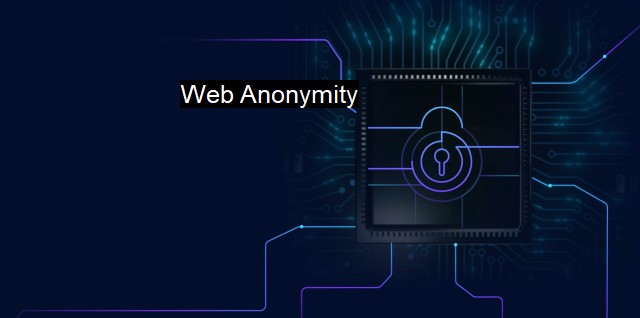What is Web Anonymity?
The Importance of Web Anonymity: Protecting Your Privacy, Avoiding Cyber Threats, and Bypassing Censorship
Web Anonymity refers to the measures that ensure that your personal and sensitive information, online habits, and browsing histories cannot be tracked or connected back to your physical identity while you are surfing the web. With it is a crucial element because it helps to protect against data breaches, tracking, hacking, targeted advertising, and identity theft.Understanding the essence of web anonymity requires an awareness of the risks lurking in the digital realm. Every time individuals use the internet, they leave a digital footprint. This footprint contains data like the IP address, the geolocation, browsing history, personal preferences, and other sensitive information. This metadata, when collected, stored, and analyzed, can reveal a lot about you, and can severely infringe on your privacy if it falls into the wrong hands. Particularly for companies, governments, and organizations, web anonymity is pivotal in protecting network infrastructure and sensitive data from cyber threats.
So, how does web anonymity work? It employs a multitude of mechanisms and strategies for securing privacy. One of the most effective safeguards is one that anonymizes the IP address. When accessing the internet, your IP address gives away your location, and can even be traced back to your specific device. Several tools can help maintain web anonymity. A Virtual Private Network (VPN) shields your IP address by rerouting traffic through the VPN’s server and making it appear as though the traffic originated from there, masking your identity. Similarly, the Tor network, a highly anonymized browser, transmits data via a series of numerous network nodes, making your online activities extremely challenging to track.
Another level of web anonymity follows the path of digital currency like Bitcoin, where transactions can exist separate from the real identities of the involved parties. That's why ransomware criminals often demand payment in Bitcoin to maintain their anonymity.
Anonymity does not mean you are immune to viruses and malware. Various online threats can take advantage of your anonymous browsing by cloaking malicious software as trustworthy web admissions or downloads. Hence, the reliance on antiviruses even still. Antivirus programs scan for, identify, and remove potential threats to the system. A robust antivirus, coupled with browsing tools to navigate the web anonymously, forms a sturdy layer of defense against unscrupulous online activities.
Web anonymity also affects browsing habits. It excludes specific types of information from being collected and analyzed, steering you clear of targeted advertising. Surrounded by debates over data usage policies, maintaining web anonymity also empowers the individual by offering the option to opt-out. The highest value of anonymity is self-determination, allowing individuals to choose when their information is gathered, by whom, and how it is used.
While the virtue of web anonymity is irrefutable in maintaining privacy and security on the internet, certain misuse cannot be overlooked. Web anonymity can veil the activities of hackers, cybercriminals, and others engaged in illegitimate actions. It’s no surprise that darknet markets, where illegal transactions often take place, rely heavily on practices that preserve anonymity.
Although web anonymity has its downsides, the need for individual online privacy should not be compromised because of potential misuse. The challenge hence lies in striking a balance between maintaining internet users' rights to privacy while preventing harmful activities.

Web Anonymity FAQs
What is web anonymity?
Web anonymity or online anonymity is the state of being unidentifiable online. This means hiding your real identity, location, IP address, and other personal information from websites, internet service providers (ISPs), and other online entities.Why is web anonymity important in cybersecurity?
Web anonymity is important in cybersecurity because it protects you from online threats, such as hacking, spying, identity theft, and phishing attacks. By keeping your personal information private, you can avoid being targeted by cybercriminals who try to exploit your vulnerabilities.What tools can I use to achieve web anonymity?
There are several tools you can use to achieve web anonymity, such as Virtual Private Networks (VPNs), Tor Browser, Proxy servers, and anti-tracking plugins. These tools help you mask your IP address, encrypt your online traffic, and hide your browsing history, making it difficult for anyone to track your online activities.Is web anonymity legal?
Web anonymity is legal in most countries, but it depends on how you use it. It is illegal to use web anonymity for criminal activities, such as hacking, cyberbullying, or online harassment. If you use web anonymity for legal purposes, such as protecting your privacy or bypassing online censorship, you won't face any legal consequences. However, it is always recommended to read the legal terms and conditions of the tools you use to avoid any legal issues.| | A | | | B | | | C | | | D | | | E | | | F | | | G | | | H | | | I | | | J | | | K | | | L | | | M | |
| | N | | | O | | | P | | | Q | | | R | | | S | | | T | | | U | | | V | | | W | | | X | | | Y | | | Z | |
| | 1 | | | 2 | | | 3 | | | 4 | | | 7 | | | 8 | | |||||||